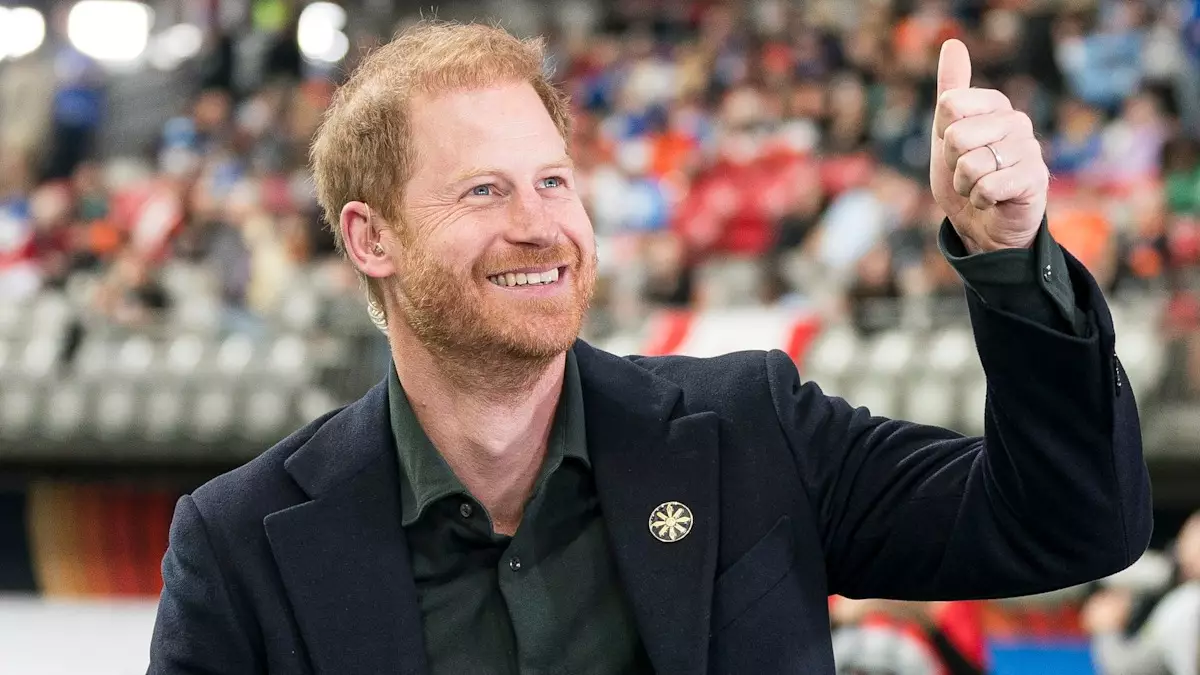Prince Harry’s transition from royal duties to a private life in California has unveiled more than just a change of scenery; it’s sparked a fascinating transformation in his speech. Since stepping back from his royal responsibilities four years ago, Harry has made Montecito his home, settling into a life characterized by the warm embrace of American culture alongside his wife Meghan Markle and their two children, Archie and Lilibet. While many aspects of his new life have been noteworthy, one particularly striking change has been the subtle evolution of his accent.
The Duke of Sussex, once the epitome of classic British eloquence with his crisp Etonian accent, is increasingly adopting American phrases and speech patterns, a subject that has not gone unnoticed by fans and linguistic experts alike. Recently, a playful video featuring Harry as he explores a tattoo parlor in New York offered a glimpse into this linguistic shift. Engaging in light banter with musician Jelly Roll, Harry’s use of distinctly American idioms such as “screw it, let’s do it” and casual terms like “dude” prompted viewers to comment on his accent that seemed to be leaning away from its British origins.
Harry’s humor-filled suggestions, even those that involve a cheeky approach to tattoo placements, have made observers remark on his American accent. Audience commentary on social media highlighted a perception that he is losing his British characteristics in favor of an Americanized manner of speaking—a sentiment echoed by various accents and phonetic shifts in his recent public engagements.
The Nuances of Language Transformation
Anthony Shuster, a communication coach, provides an insightful perspective on Harry’s accent transition. He noted a stark contrast when comparing how King Charles speaks to the relaxed manner of Prince Harry. With a predominantly American intonation now, Harry’s once articulate British manner has evolved into a more casual style of communication. Importantly, this change doesn’t appear to have happened overnight; rather, it suggests a gradual adaptation, likely influenced by Harry’s close relationship with Meghan, a Los Angeles native, and his immersion in the American way of life.
Language experts contend that linguistic changes are typically a reflection of an individual’s environment. For Harry, the surrounding American culture, language diversity, and his family dynamic contribute to the shift observed in his speech patterns. Shuster referred to audio clips from Harry’s past, drawing comparisons with how he spoke during a gap year in Lesotho in 2004. The distinction between his previously clear British articulation and the current, more relaxed American tones exemplifies how living in a different environment can profoundly influence speech.
Living in California, Harry has voiced a commitment to embracing his new life. Interviews reveal his enthusiasm for daily experiences in America, even hinting at the prospect of pursuing U.S. citizenship. This enthusiastic acceptance of his surroundings might be feeding into his linguistic evolution and influencing how he expresses himself. As the couple raises their children in a bilingual setting, it is evident that both Harry and Meghan aim to foster an environment enriching in both British and American cultures, allowing their children to experience the best of both worlds.
Fans have had varied reactions to Harry’s accent transformation. While some express surprise, others have embraced the change as a natural and acceptable evolution, celebrating his incorporation of American slang and expressions into his speech. Comments from admirers indicate a sense of approval, suggesting that his adaptation signifies a positive integration into his new lifestyle.
Interestingly, this incident is not an isolated occurrence. In past engagements, notably during the couple’s podcast, Harry had already begun to weave in American terminologies such as “awesome” and “you guys.” Many speculate that this embrace of American vernacular could be a strategic attempt to connect more closely with his new audience, perhaps even facilitating better rapport with the American press.
Prince Harry’s linguistic journey from British royalty to embracing Californian life illustrates a remarkable adaptation process, reflective of not just personal change but a cultural amalgamation shaped through love, family, and environment. As he continues to navigate this new chapter, his evolving speech serves as a testament to the rich and dynamic interplay between language and identity in a globalized world. Ultimately, this journey reminds us that accents, much like the lives we lead, are ever-evolving, shaped by our experiences and the connections we forge along the way.


Leave a Reply